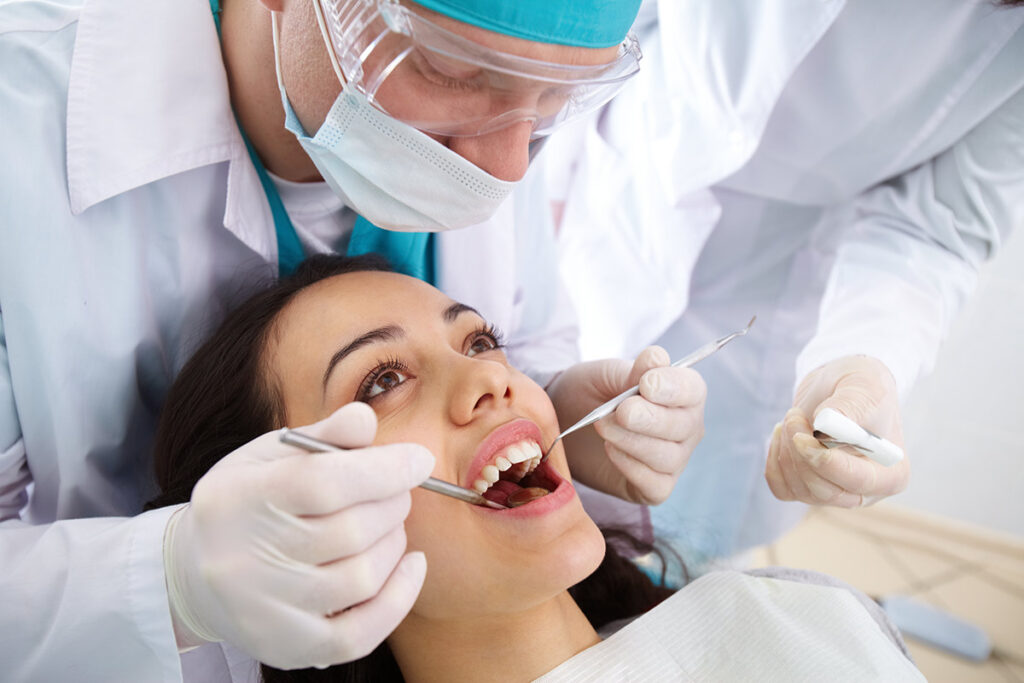Your core values act as natural motivators for those around you.
When you value hard work, for example, your diligence and commitment prove you care, and lead the way for your team.
As a dentist, your values go even further, to a genuine code of dental ethics.
While it’s not always easy, it’s incredibly important to uphold the standard.
And, with 69% of people more likely to choose a dentist who follows the American Dental Association’s (ADA) code of dental ethics, it benefits your practice as well.
As a dentist, it’s not only the staff around you that rely on your ethics – your patients do too. To be the best, most ethical practitioner you can be, keep in mind the following principles.
Valuing Trust with Principle 1: Patient Autonomy
A successful dental practice depends on trust.
When your patients trust you, they’re more likely to return, offer positive feedback, and refer you to friends and family.
Show you value your patient’s trust by practicing ethical patient autonomy.
When visiting your office, your patients expect that you’ll provide them with the best possible care.
Meet their expectations by treating them well and making sure they fully understand their situation.
Even when treatment options aren’t the most beneficial to your practice, it’s important to share every option. By offering the full range, along with your professional advice, you show respect for your patient.
Everyone has different struggles in their lives. By keeping your patient informed, even about options outside your office, you recognize them as individuals.
You should also be equally respectful of your patient’s records, and to stay up-to-date on the laws surrounding them. Privacy is an important part of medical records, and needs to be treated accordingly.
Value Care with Principle 2: Nonmaleficence
Simply put, nonmaleficence is your duty to never cause harm. Maintaining this principle requires several approaches.
First, stay up-to-date and educated on the latest in the field. What’s viewed as the right treatment today may turn out to have previously unknown side effects tomorrow. By staying current, you assure you never miss information crucial to your patients.
Second, be sure all your staff members are only doing what they’re qualified to do. This isn’t to say your team can’t learn new procedures, but unless they prove that they can properly execute a task, don’t let them attempt on it a live patient.
If you’re sick, remove yourself from your patients. Remember, you are working in people’s mouths. By avoiding your patients if you are sick, you are protecting them.
Finally, if a patient is exposed to illness from your staff, reach out and let them know, so they can address it quickly.
Dental Ethics Require Principle #3: Beneficence
More than just “doing no harm,” beneficence means to actively do good, and promote the welfare of your patients.
Beyond just the personal care you provide, giving back to your community is an important part of improving the lives of the people you care about.
To that end, attend and engage in your community’s service events and opportunities whenever possible.
Another way to help out is by getting involved in research projects. When you conduct and aid in research, you help share information that benefits the entire dental industry.
You help answer the questions dentists just like you are asking but can’t answer on their own.
Lastly, never forget to provide care within your own workplace. If there’s an unspoken problem or disruption in your office, be the one to address it. Alternatively, when good things happen, reward it, support it, and keep the positivity going.
Value Fairness with Principle #4: Justice
A major part of strong dental ethics is accepting all patients, regardless of their sexuality, race, ethnicity, gender, class, etc.
Everyone deserves a healthy, pain-free smile. But, some circumstances mean you’ll need to reach out for help in treating certain patients. For example, you might encounter someone dealing with a disability or disease you aren’t equipped to handle.
In that case, you’ll need to look for assistance from other dentists in your community.
And, while it’s fair to work on the patients of other dentists, it’s not fair to try to poach those patients for your own practice.
Let’s say you deal with an emergency case in which another dentist’s patient comes to you. Ethically, it’s only fair that you encourage them to return to their regular dentist as soon as possible.
Also, keep in mind that it’s considered fair to report the failed oral care of another dentist – if it is justifiable.
Finally, in terms of legal justice, if you find yourself proving expert testimony in judicial or administrative situations, dental ethics mean you shouldn’t charge contingent fees.
Dental Ethics Require Honesty with Principle #5: Veracity
While many factors fall under this principle, it’s also the simplest: your duty is to clearly and truthfully communicate with others.
Make gray areas black and white in your practice. Clarify the purpose of every fee, and the relevance of each treatment. If there’s a possibility that information could be misinterpreted or misleading, clarify it so your patients understand.
It holds true when marketing and advertising your practice as well.
Never imply you do something you can’t, or overpromise what actually deliver. In your title, clearly acknowledge who you are, without throwing in a flashy nickname for the sake of attracting clients.
If you branch into research and publication in the dental field, always cite and recognize your sources properly. Always give credit where credit is due.
Bringing it Together
Being a dentist means responsibilities beyond just filling cavities and cleaning teeth.
It’s about caring for your community and maintaining a strong code of dental ethics.
Communicate honestly and clearly, and present your patients with all treatment plans possible – even if they’re not your most profitable.
Do no harm, but even further, take the time to give back to your community.
Care for your patients as though they were own family, and you’ll end up seeing positive results.
Remember, sometimes the right thing to do for yourself is doing the right thing for others.
***
About First Choice Dental Lab
First Choice Dental Lab is a full-service dental lab with locations in Downers Grove, Il. & Wauwatosa, Wi.
We manufacture & customize quality dental restorations for general dentists. We create smiles based on your needs and budget.
We’re here to help you give your patients a reason to smile!
Request your fee schedule today by completing the form on this page!




